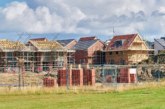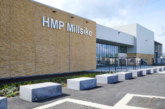In an era defined by the urgency of climate change, the need to reduce carbon emissions has never been more pressing. While conversations often focus on individual actions, one pioneering project in Crawley demonstrates the power of collaborative partnerships in addressing both residential and commercial property decarbonisation — an aspect often overlooked in the broader sustainability conversation, as LABM finds out.
Liberty, the property services firm, is one of Crawley Borough Council’s strategic delivery partners and has worked with them since 2019 delivering heating services to their tenants. Through this relationship, Crawley Borough Council was introduced to NetZero Collective, who are experts in decarbonising buildings, known for their work supporting social landlords to make their homes net zero.
Having completed a pilot of decarbonising 10 whole-homes for Crawley Borough Council, delivered by Liberty in 2021-2022, NetZero Collective is now surveying and making recommendations to guide Crawley on its approach to decarbonising its commercial buildings.
Their surveys use cutting-edge technologies and industry best practice, aligned to PAS2038, to identify ways to reduce emissions and improve energy efficiency.
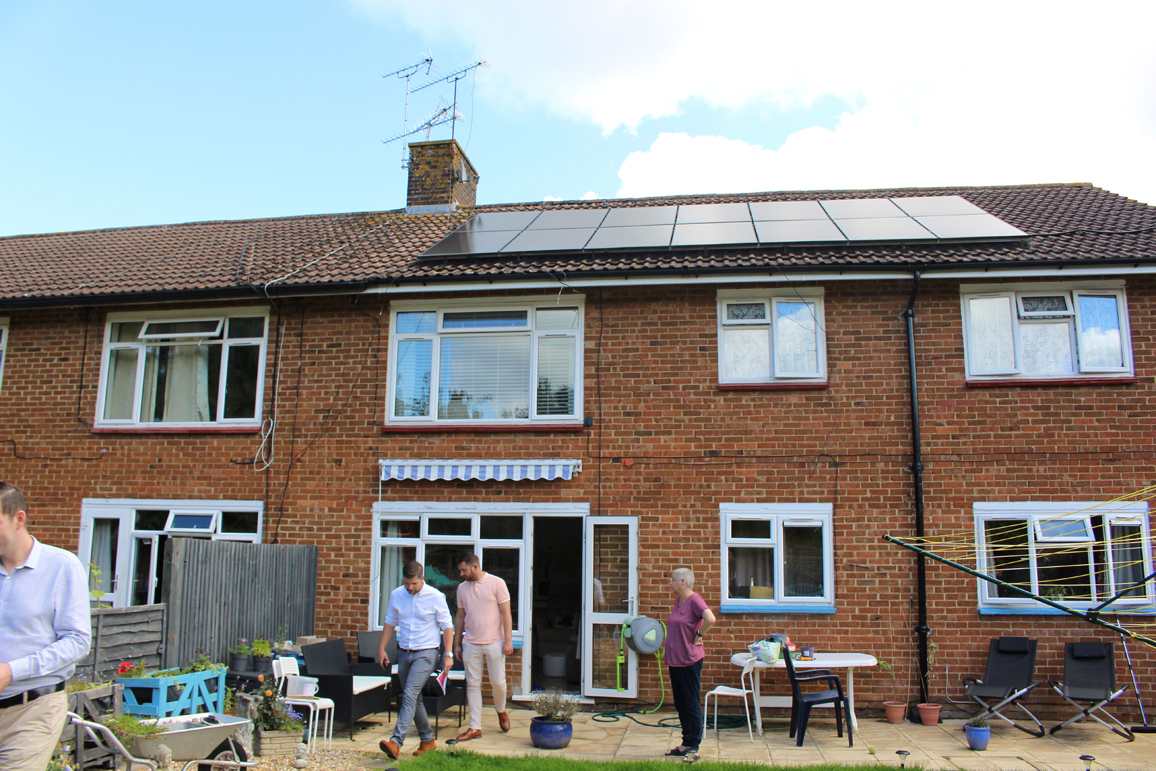
Residential — homes fit for the future
One of the standout success stories from this collaboration is the whole-home decarbonisation pilot programme. Glenn, a Crawley Borough Council tenant, became one of the first to participate in the council’s ambitious project to reduce carbon emissions while also putting money back in residents’ pockets.
The retrofit programme involved upgrading 10 homes with cutting-edge renewable technologies. A mix of solar panels, battery storage, heat batteries and air source heat pumps replaced traditional gas boilers, significantly improving energy efficiency. The properties achieved an EPC B energy rating after retrofit.
Work on Glenn’s home was completed in early 2022, and the results speak for themselves. Glenn has seen an 80% reduction in his monthly fuel bills. Glen shared: “So far we’ve saved £80 a month. It’s quite a major difference, so I’m pleased with it left, right, and centre really.”
Without the decarbonisation scheme, Glenn’s home was predicted to have emitted over 70 tonnes of CO2 cumulatively by 2050. By retrofitting the property, it has reduced this by 95%.
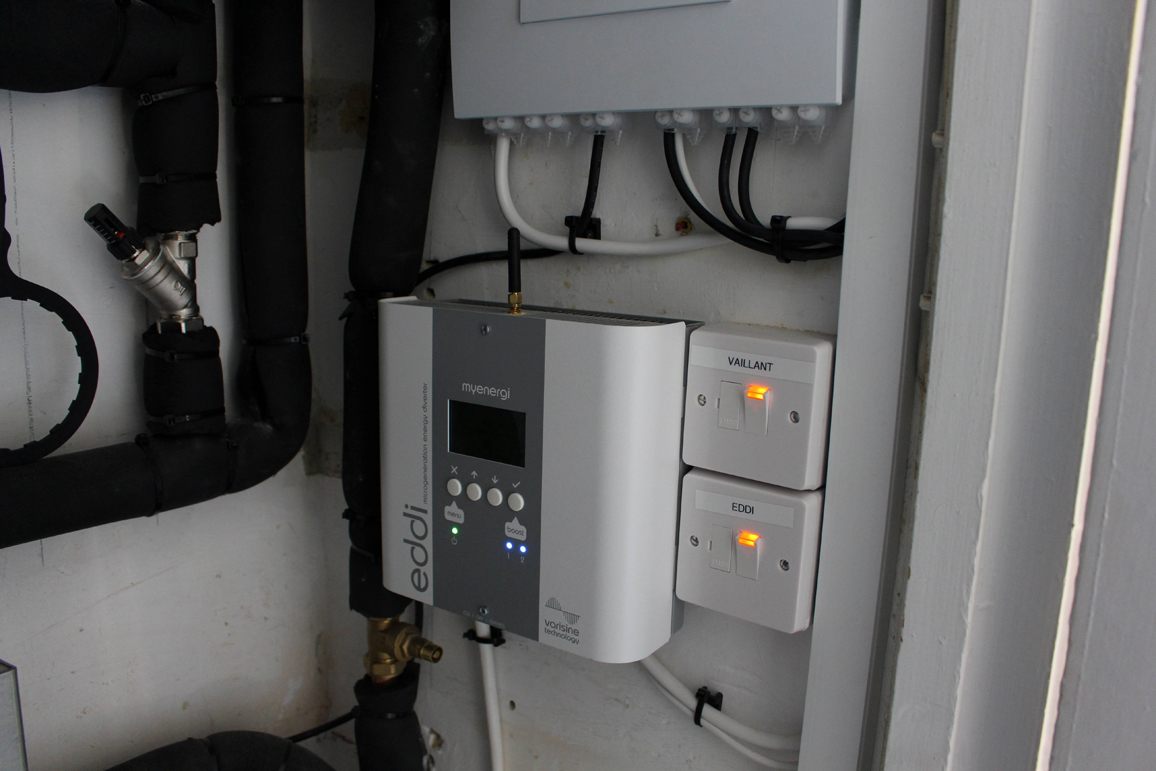
Councillor Ian Irvine, Cabinet Member for Housing at Crawley Borough Council, commented: “We have set the council the target of being a net zero carbon contributor by 2040, excellent schemes like this help us reach that goal while saving our tenants much needed money off their energy bills.”
Neil Waite, NetZero Collective Director, says: “This is proof that decarbonisation and lower fuel bills can be achieved by combining technologies like air source heat pumps with solar PV and battery storage, in homes that are insulated to good, and easily achievable levels.”
Glenn’s experience serves as a testament to the tangible benefits of sustainable retrofitting.
Commercial — extending the Impact
However, the collaborative effort between Crawley Borough Council extends beyond residential homes. In line with their commitment to reducing carbon emissions, they have embarked on a mission to transform commercial buildings into models of sustainability.
In June 2023, NetZero Collective began survey works on 19 non-residential buildings in the Crawley area, part of the council’s broader strategy aimed at fostering a greener future for all types of properties. The project aims to lead by example, inspiring other businesses and landlords to follow suit in the pursuit of carbon neutrality.
One of the key buildings included is the K2 Crawley Leisure Centre, which is the largest council-owned building and is at the heart of the Crawley community. NetZero Collective collaborated with CoreLogic UK, to capture a seamless 3D digital twin of the entire leisure facility, completed in 1937 scans over seven days — the largest 3D scan ever completed in Europe.
Findings from the survey showed that over the course of seven years, the leisure centre could not only save £7.2m on energy and maintenance costs but equally as important, reduce CO2 emissions by 16.2 kgCO₂/m²/yr.
Surveys on other Crawley Borough Council buildings showed similarly striking results, such as the Furness Green Community Centre which if retrofitted as recommended, would see its EPC rating go from F down to A.
Councillor Bob Noyce, Cabinet Member for Environment, Sustainability and Climate Change at Crawley Borough Council, said: “We were pleased to see the outcomes of these surveys which will help us progress towards our twin aims of reducing carbon dioxide emissions and expenditure.”
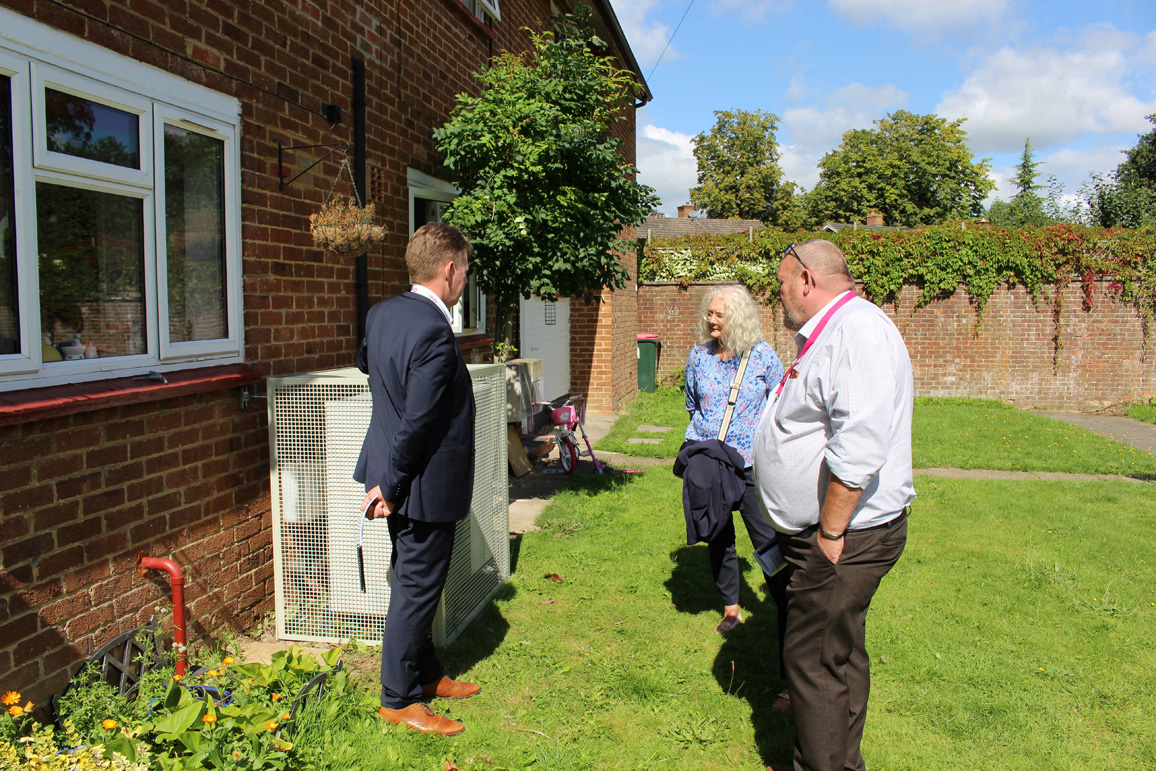
Study Day — sharing knowledge
Liberty, NetZero Collective and Crawley Borough Council believe passionately in sharing their learning and recently held a study tour for local authorities and housing associations, to showcase their work in Crawley. Knowledge exchange is essential in the fight against climate change, and this event served as a platform for innovative ideas and strategies to flourish.
Karen Sloan, Managing Director of Heating and Compliance Service at Liberty said: “Collaborative partnership working is crucial in our collective journey towards a zero carbon future. This project has demonstrated that tangible, impactful change is possible when public entities, private companies, and residents come together with a shared vision. We were proud to showcase our work to other housing associations and local authorities, giving them the chance to get hands-on with the technologies we installed.”
Conclusion
In the heart of Crawley, a collaborative approach has lit the path toward a decarbonised future. The success of this initiative serves as a reminder that landlords must consider the broader picture, encompassing both residential and commercial properties, in their quest for sustainability. Taking this approach can help keep the cost of retrofit down for landlords, whilst still delivering energy bill savings for their tenants.
Neil Waite, NetZero Collective Director added: “Beyond the immediate financial considerations, decarbonising homes presents landlords with a unique opportunity to positively impact their tenants and the local economy.
“The success of this initiative reiterates the fact that we have the tools and knowledge to significantly reduce our carbon footprint today. It’s a testament to what can be achieved through collective effort and strategic planning.
“In an age where climate action is nonnegotiable, these collaborative efforts are blazing a trail toward a net zero future.”







